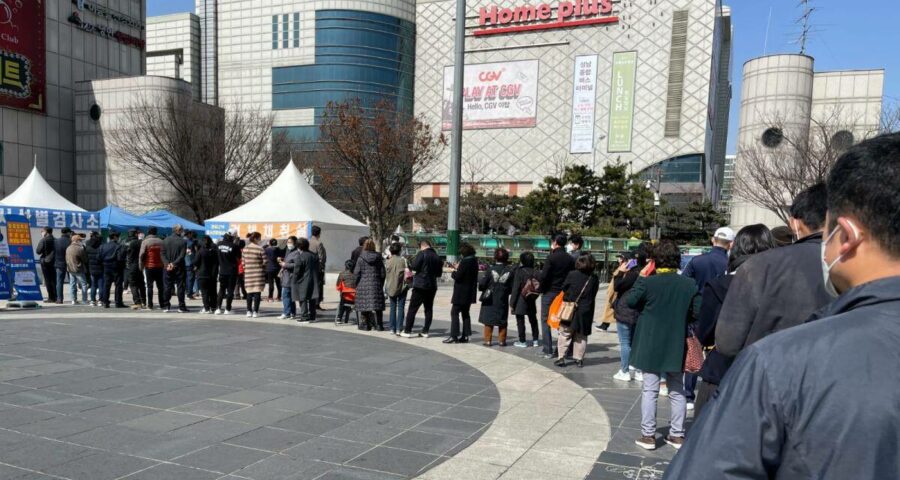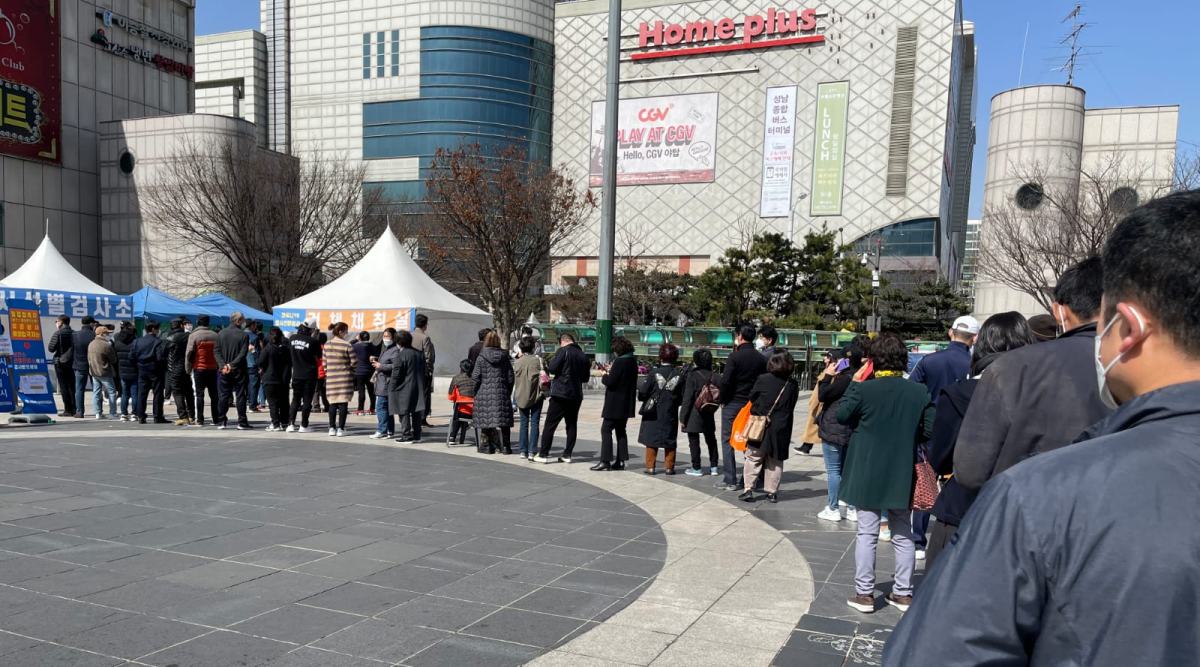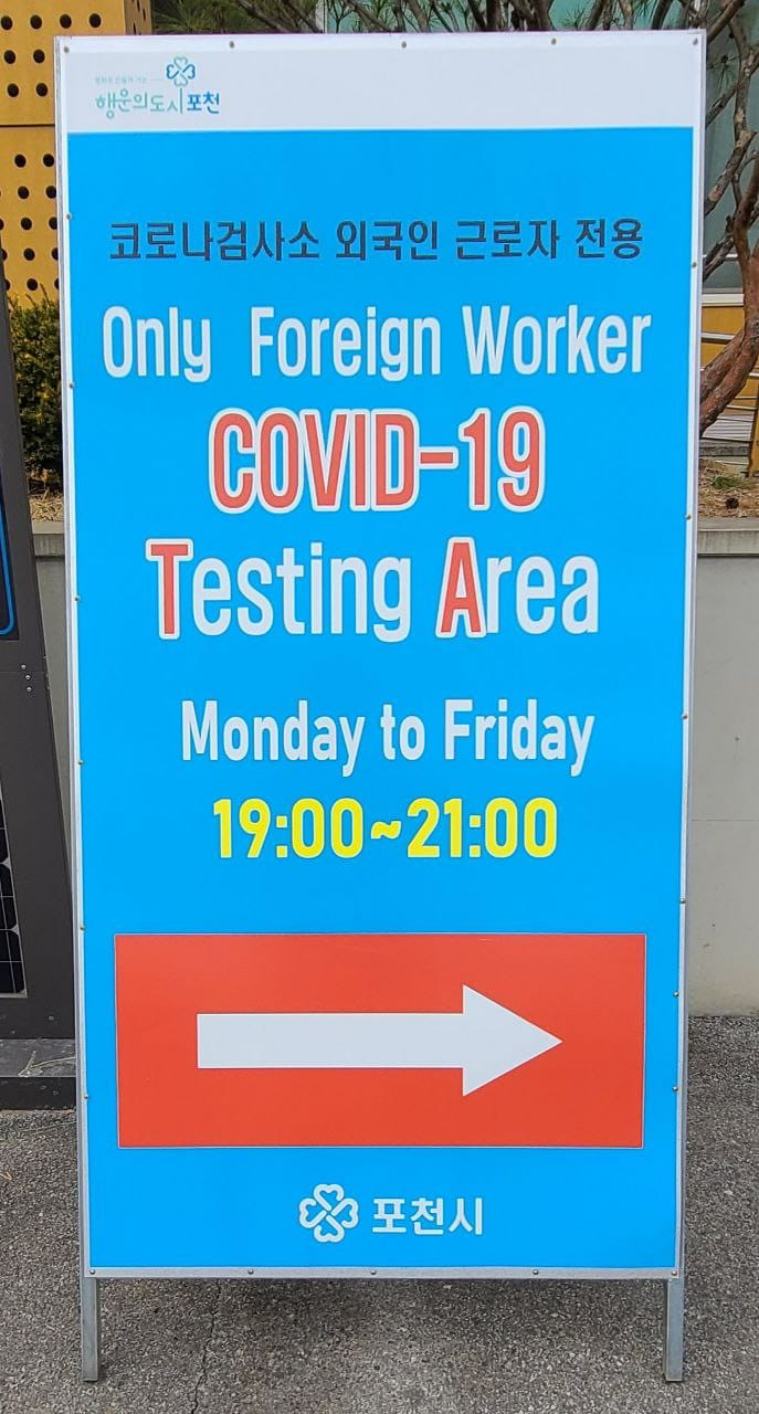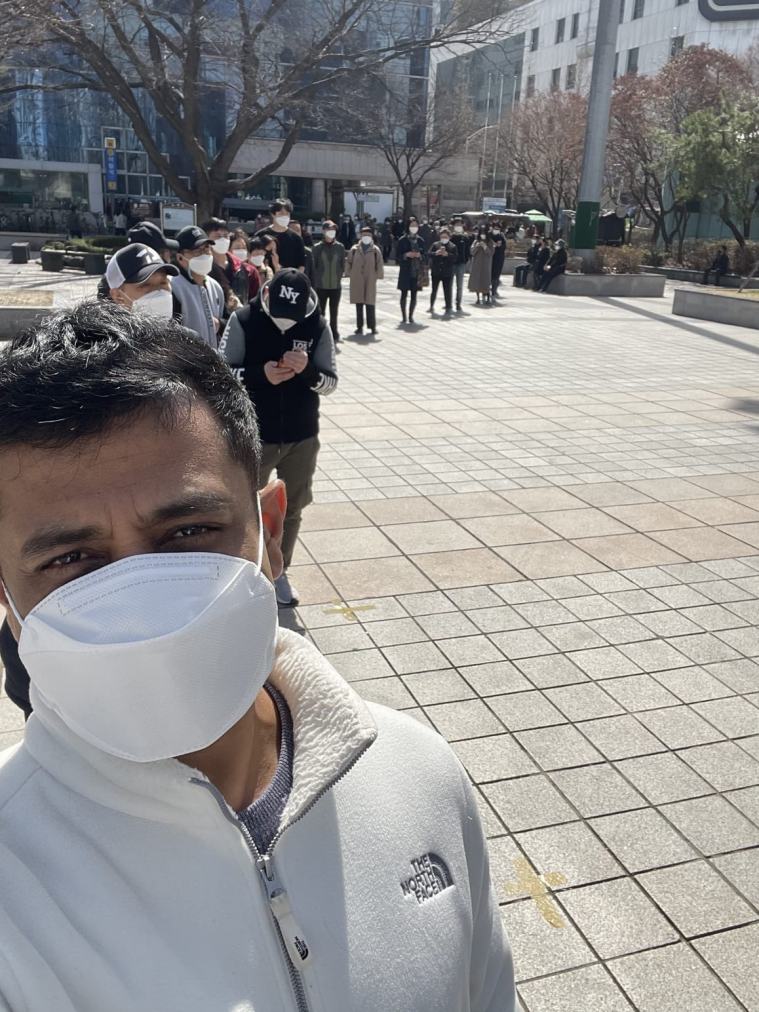The rapidly changing orders have left many in the Indian community in Seoul and Gyeonggi province unsure of how to proceed.
Just three days after issuing an order on March 17, requiring all foreign workers in Seoul to undergo diagnostic tests for Covid-19, the city government was forced to amend it following widespread criticism and accusations of xenophobia from foreign nationals, including embassies, in the country. The Seoul metropolitan government had required all foreign workers in the city to get tested before March 31 or face fines of up to 2 million won (approximately US$1,770). A similar order was issued by the neighbouring Gyeonggi province government that additionally forced employers to require tests on all new foreign job seekers and hiring of only those who test negative.
But those plans were quickly scrapped on March 18 after backlash, including protests by rights groups. In its updated orders, the Seoul city government said it will continue to recommend tests for foreigners employed at workplaces that are at risk of spreading infections, for instance, bars and small factories, an AP report quoted Lee Hae-seon, an official from the Seoul metropolitan government saying. The Gyeonggi provincial government, however, has said it has no plans to withdraw its testing order on foreigners, the deadline for which is March 22.
The rapidly changing orders have left many in the Indian community unsure of how to proceed. “It is fundamentally a racist move,” said an Indian employee at Samsung in Seoul. “There are many people who have been working from home without stepping out and now they will have to come out to get tested and risk exposure to Covid-19,” he said. Indian nationals in the South Korean capital city told indianexpress.com that designated testing centers had long lines of foreign workers following the city government’s order.
Seoul had 243,000 registered foreign workers according to figures from last December, although officials estimate another 150,000 may be undocumented, a Reuters report said.
Indians who spoke to indianexpress.com said that many in the community believe that these orders are also problematic because they lack clarity, but are reluctant to openly criticise the move out of fears for their immigration status. However, because of the rapidly changing orders and with the deadline approaching, many Indian nationals have simply chosen to get tested than to risk getting fined if the government decides to make last-minute amendments.
The Indian community is largely divided into three groups in South Korea: students, white collar workers and undocumented workers. “Indians working in big tech companies work on the same visa category as that of a restaurant employee. Even a company like SK Telecom wasn’t clear about what the regulations were and employees were asked to wait for more information before getting tested,” said an Indian national in Seoul who till a few days ago, worked for the South Korean wireless telecommunications operator.
Researchers and STEM students like Nitish Katoch found themselves having to get tested because their university coursework requires them to be registered as foreign workers. This mandatory testing isn’t a well-thought or well-executed plan by the government, Katoch said. “I understand that there is a pandemic and that you want your country to be safe, but you’re segregating foreigners in a way that doesn’t really help. The testing center is approximately 15 minutes away from my workplace and so I had to get tested at a private hospital to save time, which cost me US$100.”
Indians whom indianexpress.com interviewed prior to the amendment of the orders said that it appeared that the government was essentially trying to target testing migrant workers, many of whom live in small, cramped spaces, but did not want to make it apparent, and hence expanded the policy to include all foreign workers.
“Most Indians aren’t happy with the orders. There are many who haven’t really travelled outside or even held community gatherings and they are still being asked to do this after following all government protocols,” Katoch said.
For members of the Indian community, it is really the lack of clarity in the orders and the short timeline that has been imposed that has been difficult and stressful. “When they first put out guidelines, people weren’t really sure what needed to be done,” said Katoch. While the testing itself is quick, it is the long lines, particularly in high-density neighbourhoods that have become a cause for concern.
But there are others in the community, like undocumented Indian migrant workers who find little cause for complaint. Thirty-five-year-old Brijesh does odd jobs in Gyeonggi province and was only happy to get tested. “Indians are careless. I used to tell people to wear masks and they would say ‘corona is nothing’,” Brijesh said of his fellow workers. “I feel like the Korean government is doing the right thing. We Indians don’t even stop for the red light at traffic signals; this is coronavirus.”
“There are foreign nationals here who don’t really follow health protocols like the ban on gatherings of more than five people. The Koreans are afraid and they don’t know how else to control the situation,” said Sanjay Yadav, president of the ISKCON temple in Pocheon, who helps undocumented Indians in Gyeonggi province.
Madhu L. came on a tourist visa five years ago to South Korea and never left. The 30-year-old resident of Pocheon who works in a local factory, likes the country and barring her immigration status, follows all other local laws and regulations. “I was walking back the other day from my factory to my room and in one corner of the street, I saw a group of 20 Indians violating the ban of gatherings of five. They were laughing and joking and with the exception of one or two, nobody was wearing a mask,” Madhu said. “Covid-19 is a global pandemic, so why are people objecting to testing?”
On March 19, the Indian Embassy in Seoul issued a statement indicating that like its American, British and French counterparts, it had discussed the orders with government authorities. “The Embassy has taken up the matter of (the) new requirement of all expatriates including Indians to undergo COVID19 test by March 31, 2021. We have highlighted that any steps taken to combat the Covid19 outbreak must be fair, reasonable and non-discriminatory….The Embassy is hopeful that the concerned authorities will review the matter in view of our intervention and that of many other Embassies,” the statement said.
Following widespread complaints that the testing was discriminatory, South Korea’s National Human Rights Commission said it was reviewing these testing directives in Seoul and in other areas. The country’s Health Ministry ordered the Seoul city government to implement measures that “don’t discriminate between Korean and foreign nationals and don’t infringe on human rights,” according to an Associated Press report.
Nishesh Gupta, a Ph.D. student at the University of Science and Technology in Daejeon is scheduled for getting tested for Covid-19 this weekend, just in time for the deadline, after his department issued a circular for all foreign students. The nearest testing center is a 20 minute train ride away, and like his friends, he isn’t very concerned about the accusations of xenophobia levelled at the South Korean government. “If it was mandated just for citizens of one country, then it would have been a problem. But when you’re going to someone else’s house, you follow their rules.”
Source: Read Full Article





